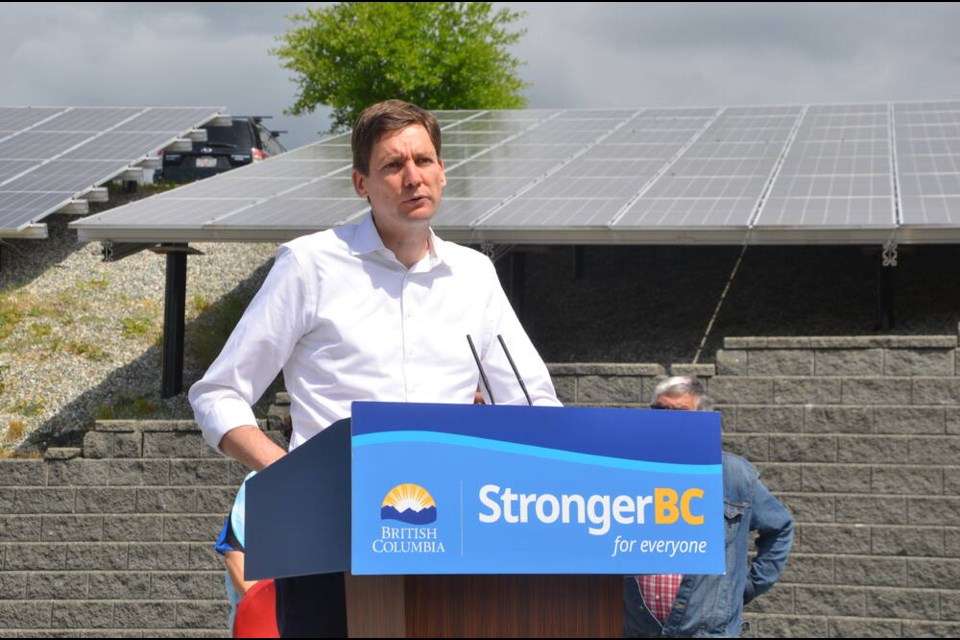BC Hydro will be issuing a call for new sources of renewable, emission-free electricity, with applications to open in the spring of next year.
The call out, the first to come from BC Hydro in 15 years, has been prompted by an accelerated need for clean energy, said Premier David Eby on Thursday, at a media event at the Tsleil-Waututh Nation administration building in North Vancouver.
Eby said an additional 3,000 gigawatt hours per year of renewable energy, enough electricity to power 270,000 homes in B.C, is needed by 2028 – three years earlier than previously estimated.
“We need to act now to meet this growing demand and to ensure we stay on track with our climate goals,” he said.
In addition, it was announced the province will be providing $140 million to the B.C Indigenous Clean Energy Initiative (BCICEI), a clean-energy funding partnership between the Province of British Columbia, the Government of Canada, and the New Relationship Trust, to support Indigenous-led power projects.
Energy and Mines Minister Josie Osborne said the funding will open up new opportunities for First Nations communities to contribute the renewable electricity needed to power B.C.’s growing economy, and meet the province’s climate targets while keeping rates affordable.
“These projects will generate jobs and economic opportunities that support Indigenous self-determination and advance reconciliation,” she said.
“All over British Columbia there are visionary people who are taking up the electrification challenge with new ideas, innovation and investment. We’re acting today in partnership with First Nations so that we’re prepared to fully seize our advantage and power a clean, prosperous low carbon future for all.”
Eby said it was important to recognize the “incredible potential” of Indigenous-led clean energy projects, noting what had already been accomplished at the Tsleil-Waututh Nation in regards to its solar power system, a project that had been put in place to produce enough power to cover the needs of the local childcare centre, but had grown to become the largest solar power project in Metro Vancouver.
Chief Jen Thomas said the Tsleil-Waututh Nation is committed to reducing its carbon footprint and to addressing climate change issues.
She touched on the solar power system, adding how its 338 panels provide 80 per cent of the energy needed to run the Nation’s administration building, and she noted the energy efficient housing policies the Nation has in place.
“It will take all of us working together to build a more sustainable economy as we broaden our clean and renewable sources of energy through this call for power,” said Chris O’Riley, president and CEO of BC Hydro.
“BC Hydro is committed to meeting the growing and changing needs of our customers and will be working with all levels of government, Indigenous communities, stakeholders and the private sector to make this happen.”
Mina Kerr-Lazenby is the North Shore News’ Indigenous and civic affairs reporter. This reporting beat is made possible by the Local Journalism Initiative.



